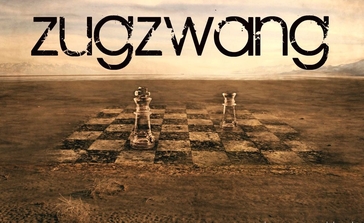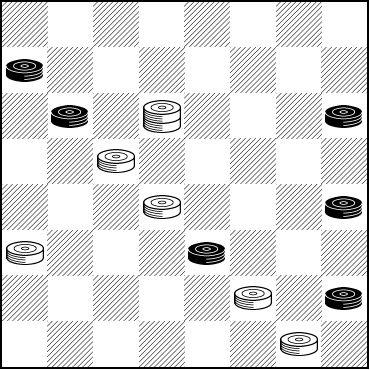The Checker Maven
Jump to navigationZugzwang! Problem Contest 60

Zugzwang. Compulsion to move, made up of the German roots Zug, move (among other meanings) and zwang, compulsion or force. A situation in which a player has to move even though it will mean losing or incurring a major disadvantage. It's a term commonly associated with the game of chess, but it applies to checkers as well.
The 60th entry in Bill Salot's amazing ongoing series of checker problem composition contests features the theme of Zugszwang with four stellar problems illustrating this principle. Solve them, enjoy them, and by all means vote for the one you think should be the winner.
As always, the action takes place on our current contest page.
To get you started, here's an example. It's by Jim Loy and was the winning problem in Contest 34, August 2017, which featured the same theme as today's contest.

WHITE
White to Play and Win
W:WK10,14,18,21,27,32:B5,9,12,20,23,28
After you've tried this one, click on Read More to see the solution and then hurry over to the current contest page for more Zugzwang enjoyment.![]()
Solution
*21-17 Zugzwang! 23-26---A *17-13 26-31 13-6 31-24---B *10-15 12-16 *14-10 Zugzwang! 16-19---C *18-14 19-23 14-9---D 5-14 *15-19 24-15 *6-2 White Wins---E.
A---9-13 *27-24 jump *18-15 jump *14-9 White Wins.
B---Left as a draw, A. Collings vs J. Ball, Northampton Mercury Mail Ty, 1908.
C---5-9 *18-14 9-18 15-22 24-19 22-26 best. White Wins.
D---Or 15-19 first.
E--- 15-6 2-27.
You can email the Webmaster with comments on this article.
